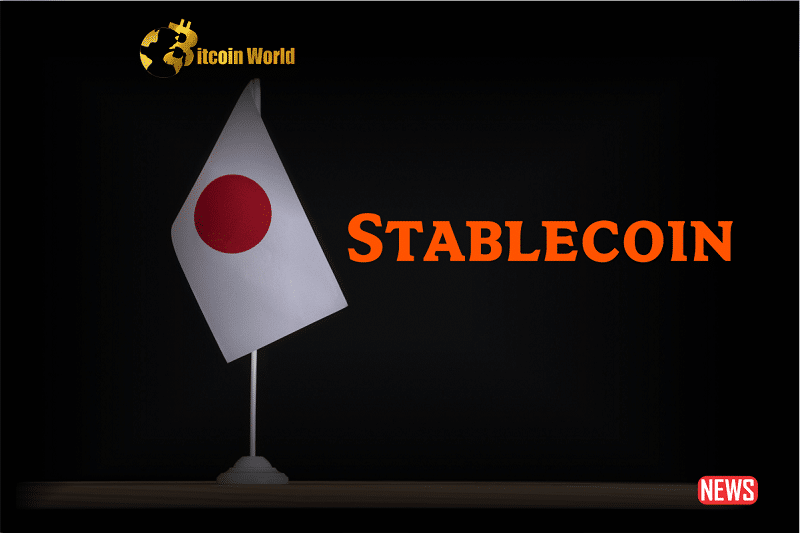Get ready for a shake-up in the world of digital finance! Japan has officially given the green light to stablecoins, thanks to the newly enacted Payment Services Act on June 1, 2023. This isn’t just a minor tweak; it’s a game-changer that could redefine how businesses in Japan handle payments and transactions. For a long time, a de facto ban kept domestic stablecoin issuance on the sidelines, but now, the doors are wide open. Let’s dive into what this means for everyone involved.
Why is This Such a Big Deal? Unpacking the Benefits
Imagine a world where sending money across borders is as easy as sending an email. That’s the kind of potential stablecoins bring to the table. Here’s a closer look at the exciting possibilities:
- Boosting B2B Efficiency: Think smoother and faster transactions between Japanese companies and their international partners. Experts are even estimating a market potential of around $7.2 billion!
- Global Transactions Made Easier: Japanese stablecoin issuers can now facilitate payments between multinational corporations, potentially earning fees in the process.
- Revolutionizing Remittances: Say goodbye to hefty fees and slow transfers. Stablecoins could offer a more cost-effective and efficient way for people to send money internationally.
- Streamlining Online Shopping: Imagine faster and more secure online payments, both domestically and internationally.
What Rules are in Place? Focusing on Regulations and User Protection
With any new technology, especially in finance, regulation is key. Japan’s revised legislation makes a clear distinction:
- Clear Definition: The law specifically excludes algorithmic or crypto-asset backed “stablecoins” from being categorized as stablecoins under this framework. This focuses on stablecoins backed by fiat currency or other stable assets.
- User Safety First: Stringent guidelines are in place to protect users and ensure compliance.
- Security Measures: Token issuers have the crucial ability to suspend transfers and redemptions to wallets they don’t manage. This adds a significant layer of security and helps mitigate potential risks.
Who’s Getting Involved? Banks and the Central Bank Weigh In
It’s not just small fintech startups that are interested. Established financial institutions are also taking notice:
- Regional Banks Eager to Participate: Shikoku Bank, for example, is already considering issuing stablecoins, according to insights from Kondo Hidekazu at GU Technologies.
- Major Players Exploring Interoperability: Even giants like Mitsubishi UFJ are actively looking into how stablecoins can work seamlessly within the existing financial system.
- Central Bank’s Positive Outlook: The head of Japan’s central bank has expressed optimism about stablecoins, even suggesting they could coexist harmoniously with central bank digital currencies (CBDCs).
What Does This Mean for the Future?
The lifting of the stablecoin ban in Japan isn’t just a legal update; it’s a signal of the country’s willingness to embrace innovation in the financial sector. With clear regulations prioritizing user protection, Japanese companies now have a powerful tool at their disposal.
Here’s a quick recap of the potential impact:
| Area | Potential Impact |
|---|---|
| Payments Efficiency | Significant improvement in speed and cost-effectiveness, especially for cross-border transactions. |
| Global Transactions | Easier and more accessible international trade and financial activities. |
| Remittances | Lower fees and faster transfer times for individuals sending money abroad. |
| Online Shopping | More seamless and secure online payment experiences. |
| Financial Landscape | Increased competition and innovation within the financial services sector. |
Looking Ahead: A More Connected Global Economy?
As banks and financial service providers in Japan actively explore the possibilities of stablecoins, we can expect to see significant developments in the coming years. This move could very well reshape how businesses transact, both within Japan and on the global stage, paving the way for a more interconnected and efficient global economy. Keep an eye on Japan – they’re setting a fascinating precedent in the world of digital finance!
Disclaimer: The information provided is not trading advice, Bitcoinworld.co.in holds no liability for any investments made based on the information provided on this page. We strongly recommend independent research and/or consultation with a qualified professional before making any investment decisions.


